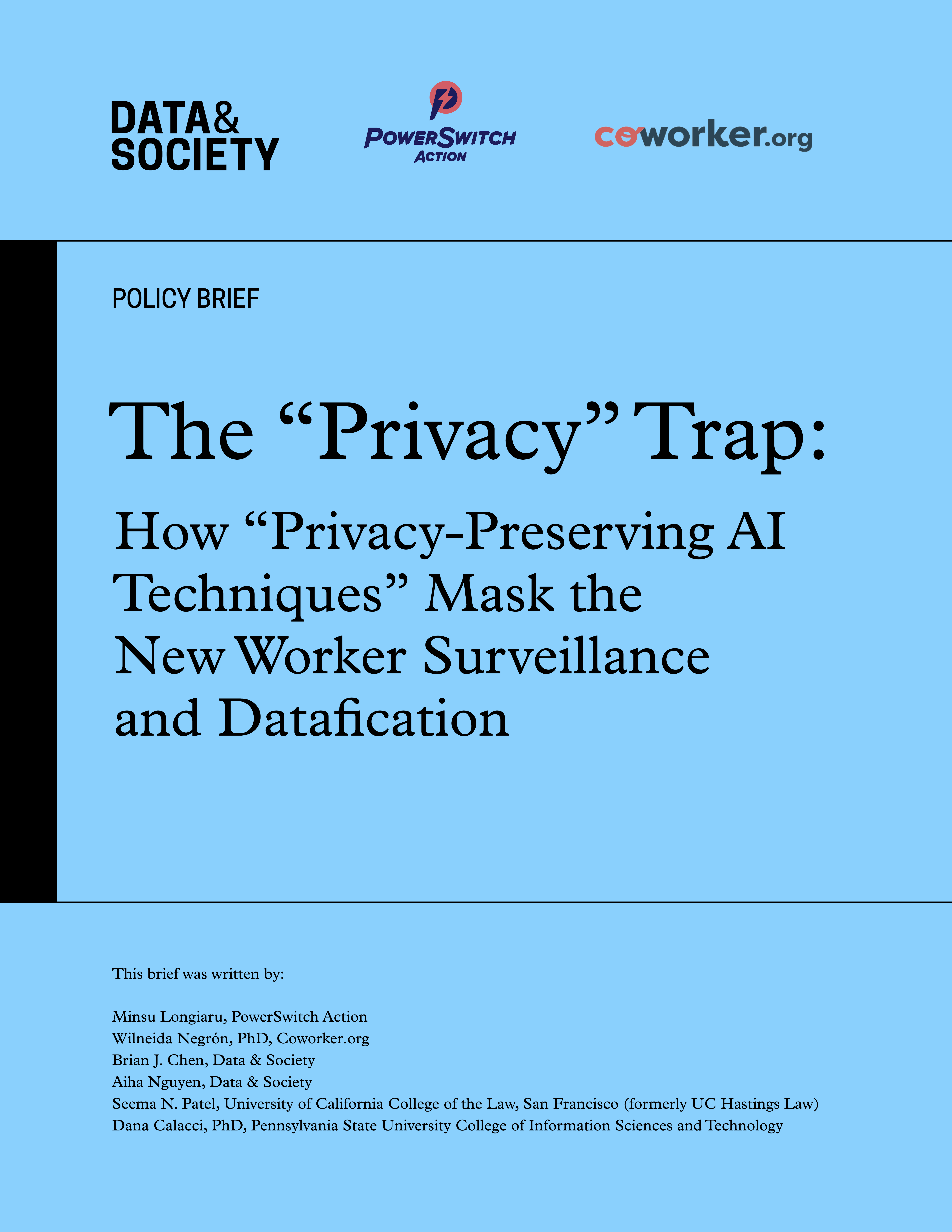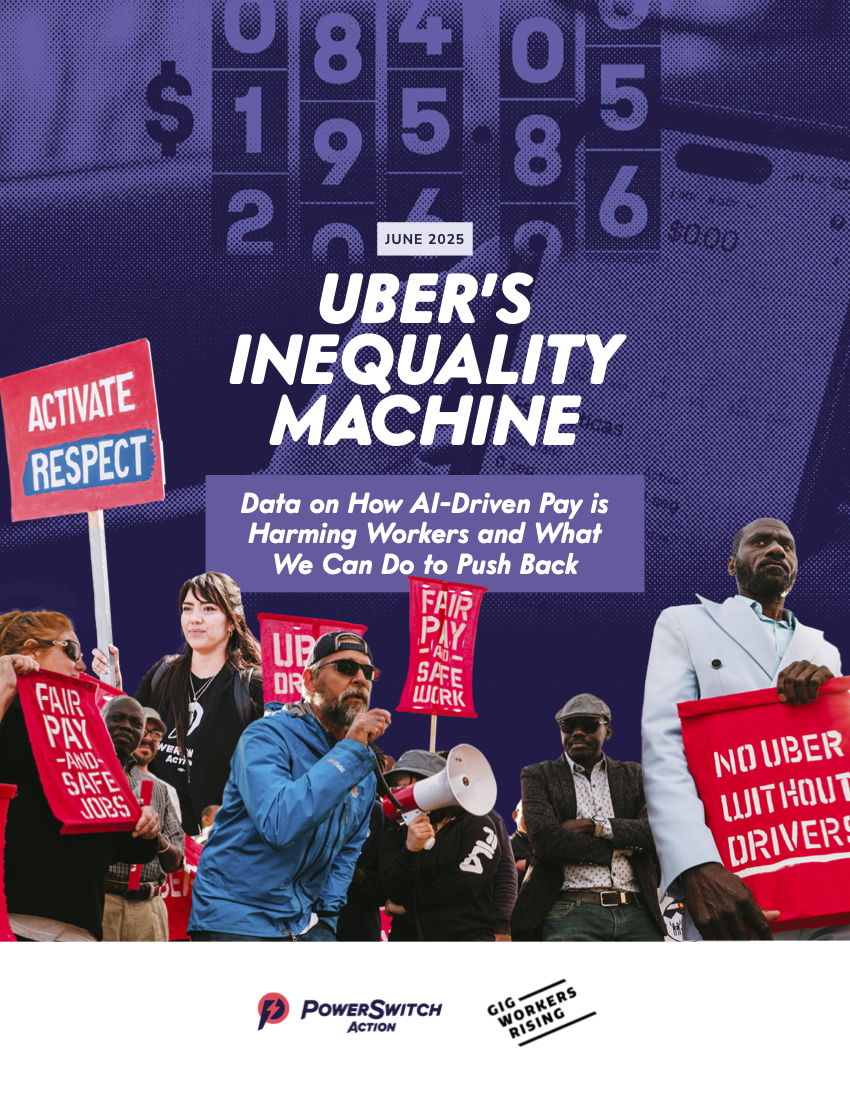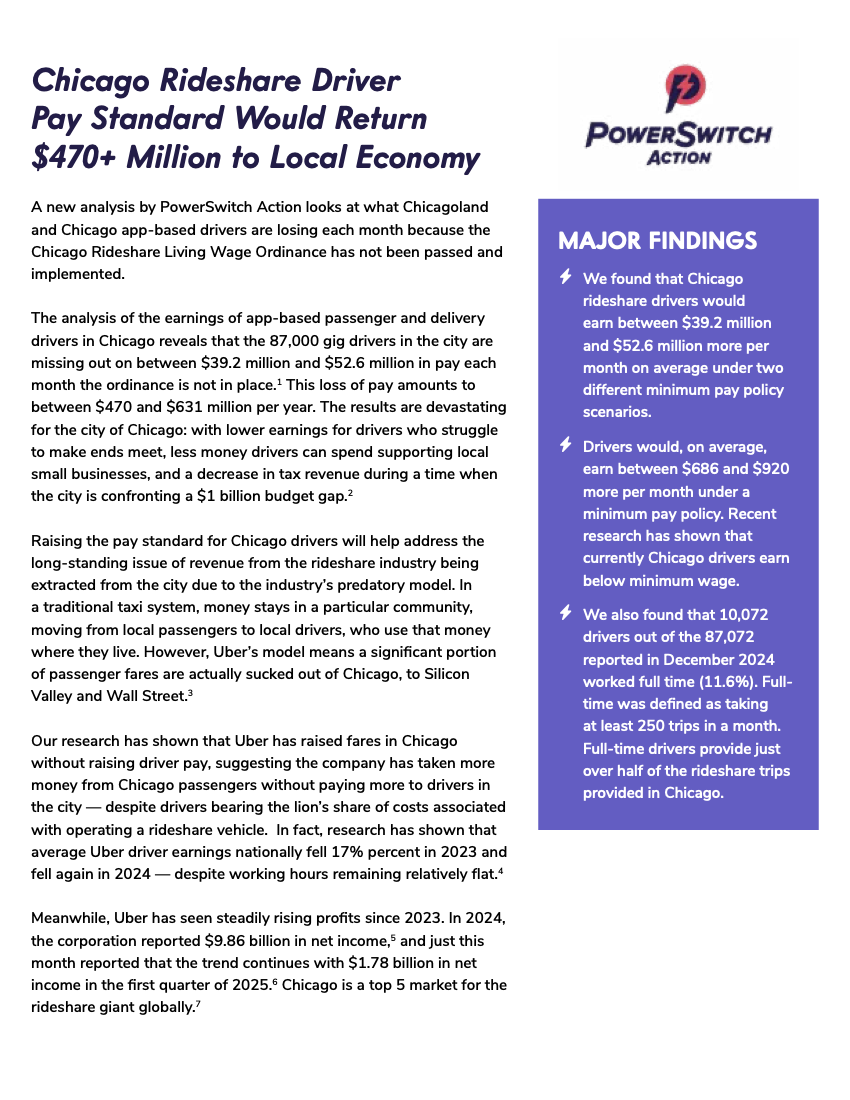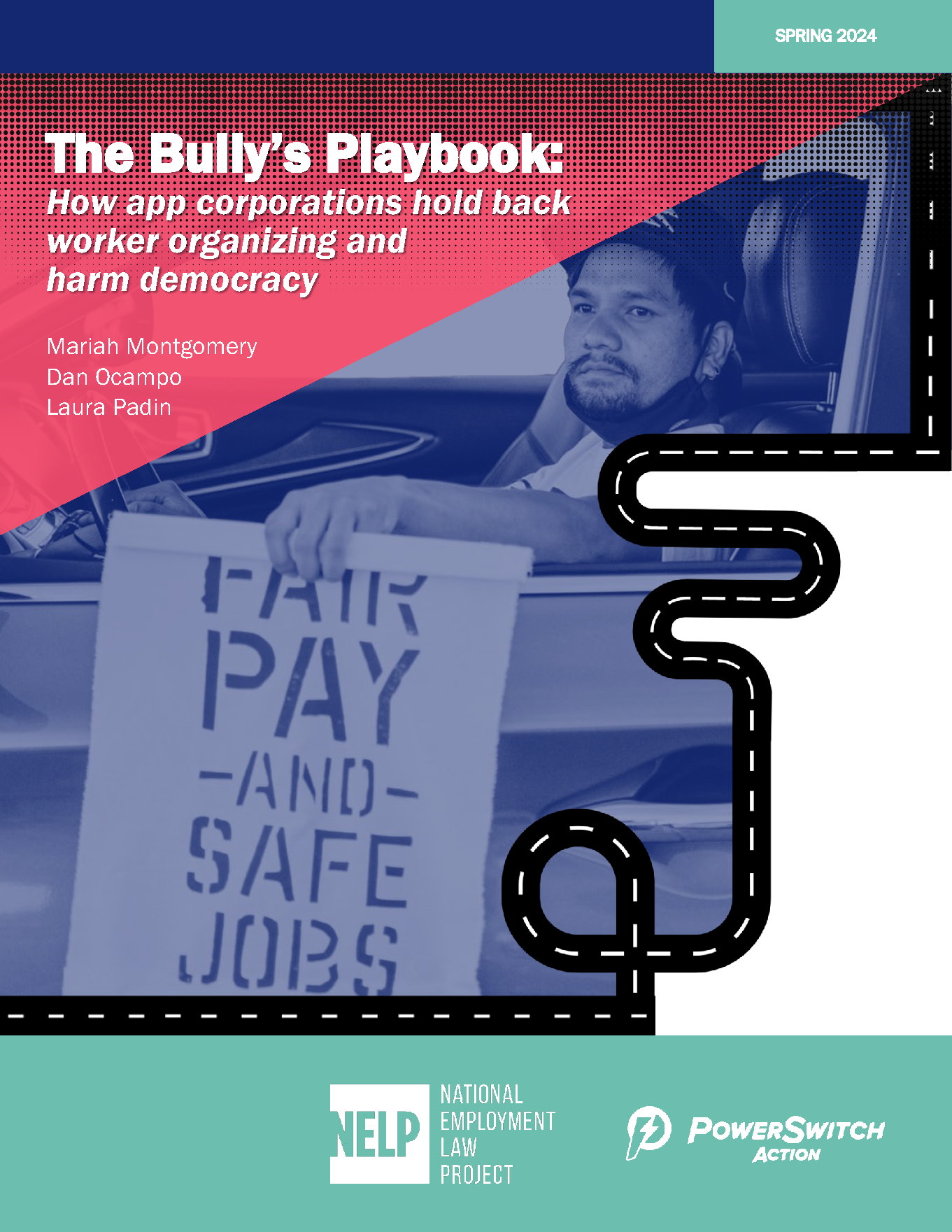pop ed toolkit
Building Worker Power in the Digital Age
Popular Education Tools for Organizers
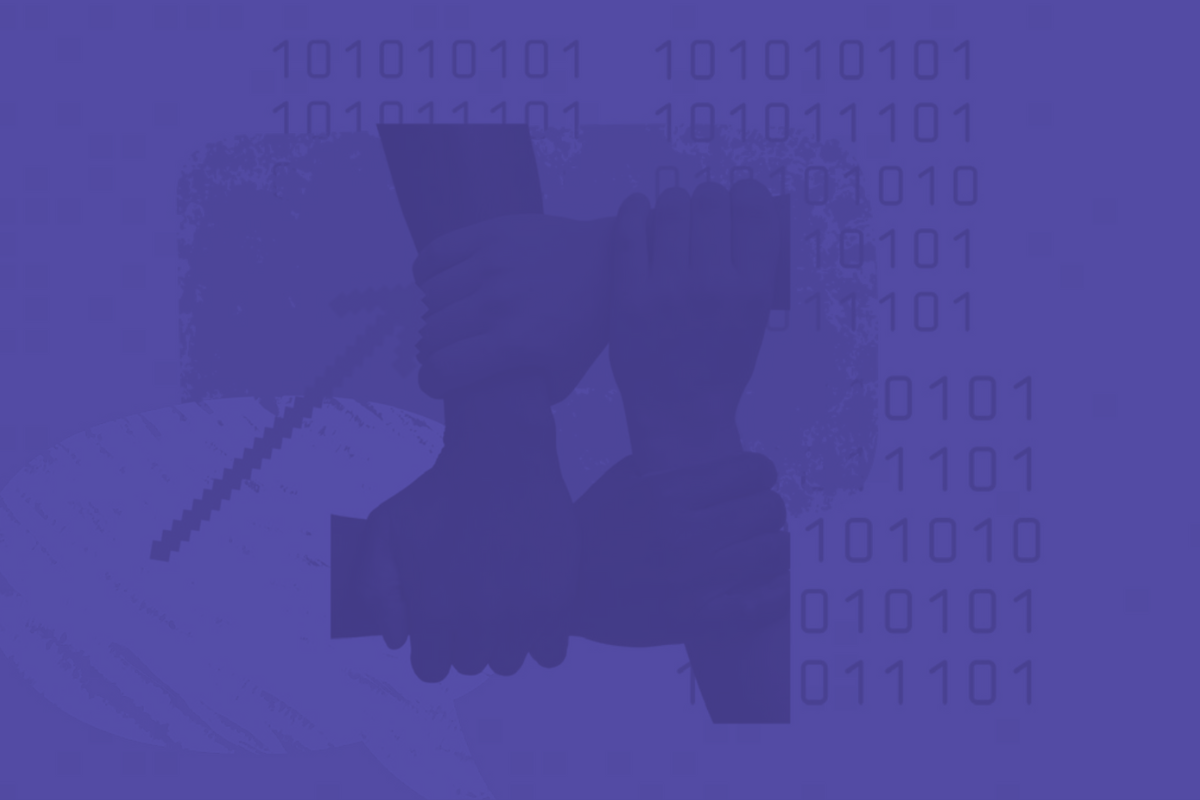
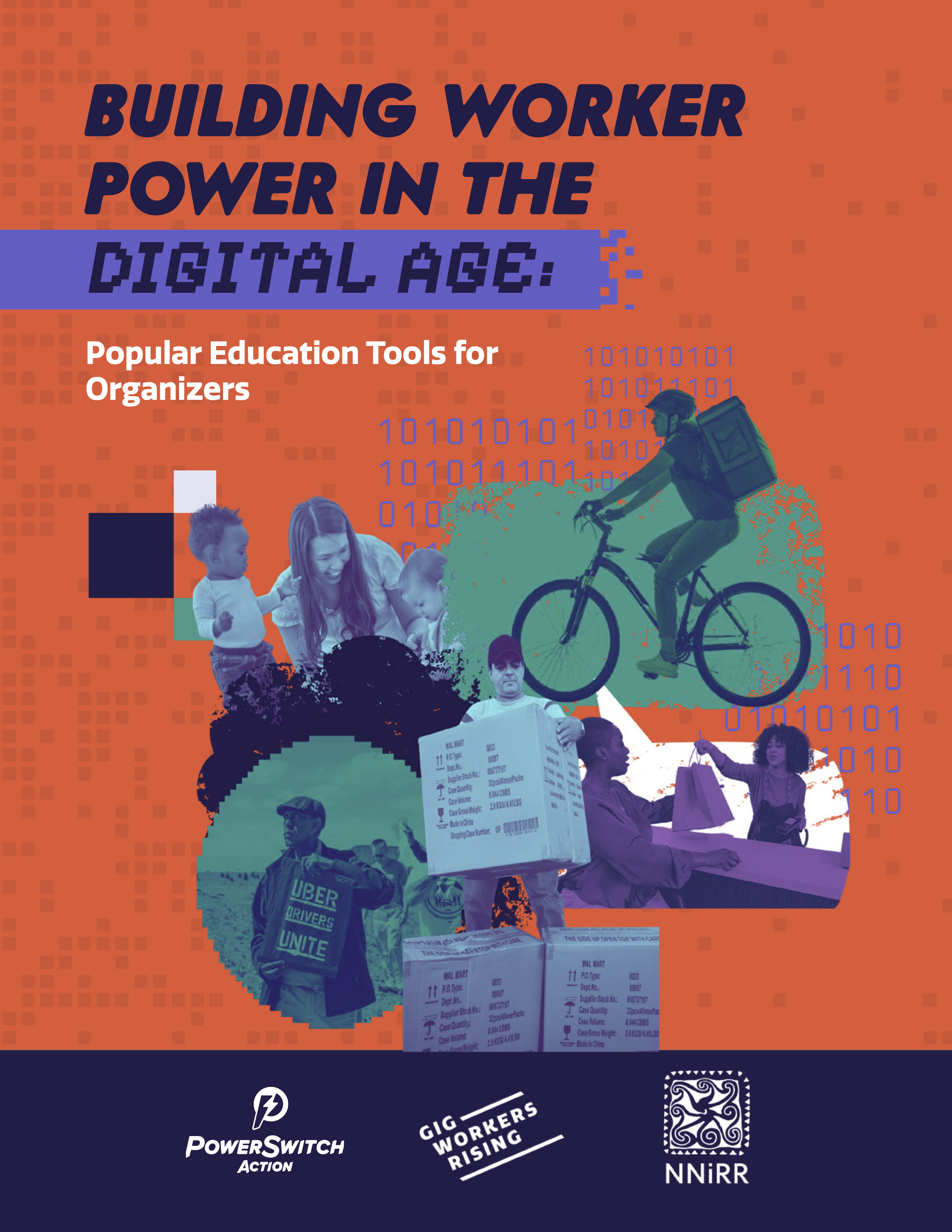
From electronic surveillance to automated management, Silicon Valley is developing new technologies for bosses to exert ever-greater power and control over workers. To fight back, we need more than turnout. We need strong, broad-based, worker- and community-led movements, in which, in the words of political scientist Hahrie Hahn, “people are power, not props.”
Building Worker Power in the Digital Age: Popular Education Tools for Organizers is a new toolkit that contains a series of popular education modules and activities to facilitate worker- and community-based discussions, strategizing, and power-building on workplace and social justice issues that intersect with work and technology.
“Building Worker Power in The Digital Age is a must-read for leaders in the technology space. It is common for AI and digital technology to be referred to as a Goliath. However, Building Worker Power in The Digital Age provides examples of how workers and labor unions have successfully organized in the past, empowering workers to advocate for their rights and laying the foundation for future generations of workers and organizers.”
— Amanda Ballantyne, Executive Director, AFL-CIO Technology Institute
This comprehensive toolkit was co-authored by PowerSwitch Action, Gig Workers Rising, and the National Network for Immigrant and Refugee Rights, with contributions from Ryan Gerety (Director, Athena Coalition), Seeta Peña-Gangadharan (co-founder and co-lead of Our Data Bodies), and Naomi Campbell (Director, Legal Empowerment Program, Right Question Institute). Wilneida Negrón wrote the Foreword.
Get the Toolkit
Sign up here to download the full toolkit:
By signing up, you agree to receive email updates from PowerSwitch Action. You can unsubscribe at any time.
This toolkit will have staying power as we confront an ever-changing landscape of experimentation on working class people with various forms of technology, enabling an entire generation of organizers, workers and advocates to fight for something better.
— Michelle Miller, Director of Innovation, Center for Labor and a Just Economy
The interactive workshops that make up this critical tool support innovation for resistance. We too are ever evolving and forever innovating, so thank you for providing a resistance pedagogy that meets this moment.
— Dr. Sheri Davis, Executive Director, Center for Innovation in Worker Organization & Faculty, Rutgers School of Management and Labor Relations
Workshops in the Toolkit:
Worker Data, Worker Power provides an entry point for groups to talk and think about data at work. Beginning from workers’ personal experiences, participants investigate how corporations use data to attempt to exert “power over” workers, and how workers and allied movements can generate collective “power with” to resist.
Mapping Our Data at Work introduces the concept of work that is performed by a “physical self” and a “digital self,” examining how data that companies use to generate profits at workers’ expense is created through workers’ physical labor. Participants explore what types of workplace data they would be most interested in accessing to build their individual and collective power.
Our Questions, Our Knowledge equips participants with concrete tools they can use to engage a wide range of work and technology experts and decision-makers—data scientists, software engineers, policymakers, and more. Participants will leave with a method they can use to ask questions, participate effectively, and help hold subject-matter experts and decision-makers accountable, no matter what the setting.
History of Data Capitalism and Worker Surveillance 101 reviews the history of data capitalism and worker surveillance in the United States, beginning from its origins in chattel slavery. Participants will have the chance to draw connections between these historical examples and their personal experiences, including their family and community histories.
The Tech Industry Supply Chain introduces the dominant corporations or “movers” at each key link in the tech industry supply chain, examining how power is consolidated in the hands of the few. Participants will reflect on the positions they hold in the Tech Industry supply chain, and the possibilities that can emerge from building networks of solidarity with other workers along the supply chain locally, nationally, and internationally.
Migration, Tech, and Workers’ Rights examines the role that immigration and migration play in today’s digital economy, which relies heavily on labor performed by workers living in or having migrated from the Global South for corporations headquartered in the Global North.
Digital Rights Are Human Rights explores the connection between digital rights and international human rights. Using a “human rights circle framework,” participants will document the impact of digital rights violations on individuals and communities. They will also explore case studies of how workers and communities have successfully used human rights strategies to organize and fight for their digital rights.
Resisting the AI Extraction Economy, Practicing Our Futures highlights how our current systems of artificial intelligence, electronic surveillance, and automated management are rooted in an extractive industry model that degrades labor, the environment, and our communities. After viewing examples of resistance by workers from around the world, participants will use image theater to create their own vision for technology and work that centers people, the planet, and cross-movement solidarity.
Toolkit Launch Webinar
Workers, organizers, and tech justice practitioners explored why, when it comes to labor and technology, popular education is uniquely suited to help us build the shared analysis, strategy, and power with workers and community members that we urgently need to meet this moment.
They also discussed concrete strategies for how unions, workers centers, and community organizations can use and adapt this toolkit.

